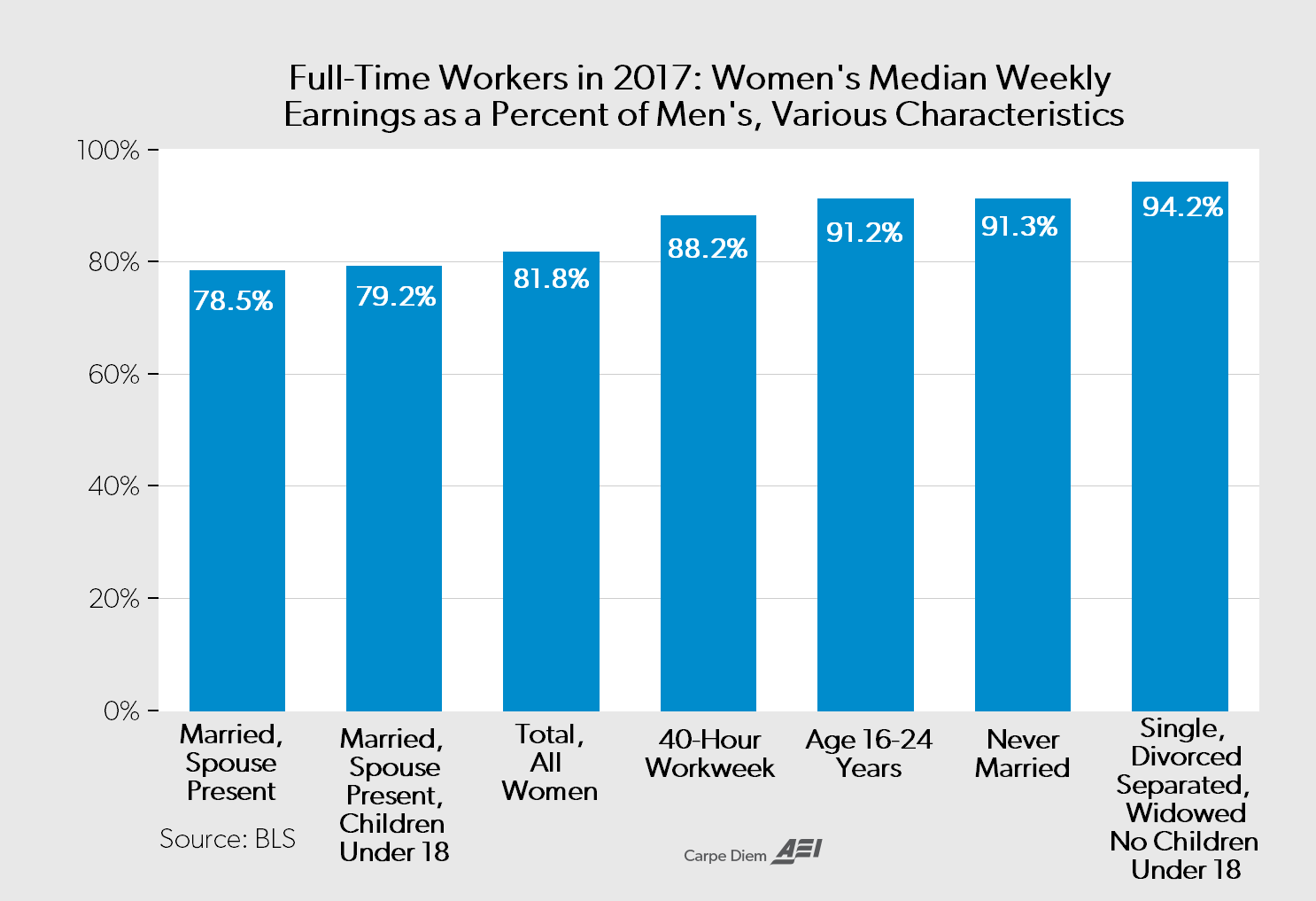June O’Neill, an economics professor and former Congressional Budget Office director, has researched this issue and concluded that: “The gender gap largely stems from choices made by women and men concerning the amount of time and energy devoted to a career, as reflected in years of work experience, utilization of part-time work, and other workplace and job characteristics.”
Familial roles – such as who stays home with the kids when they are sick – tend to play a larger role in determining wages than does gender. As a result of such roles – most kids want mom to be the one to stay home – women often earn less than men. But in today’s labor market, gender discrimination is not the reason why.
Indeed, a recent Bureau of Labor Statistics (BLS) report finds that “women working 35-39 hours per week last year earned 107% of men’s earnings for those weekly hours, i.e., there was a 7% gender earnings gap in favor of female workers.”
As the gender pay gap is being debunked nationwide, some in Mississippi are clamoring for a state law to address an issue that is no longer an issue.
But Mississippi, like every other state, must abide by federal wage and hour laws. These laws, among other things, prohibit discrimination based on gender. An employer in Mississippi cannot discriminate against women just because we don’t have a state law prohibiting it.
When controlling for hours worked and lifestyle choices, such as marriage, we get a clearer picture of earnings by gender.

A review of data from the Bureau of Labor Statistics shows:
Marital status also affects the earnings of women, as does many other factors.
As we see, being married has a negative impact on the earnings of women. But one could also presume that that is a personal choice, and women may place greater value on flexibility, commute time, child care, and other factors important to those with children at home.
In the end, there is no gender wage gap when we compare apples to apples: doing exactly the same work while working the exact same number of hours in the same occupation.